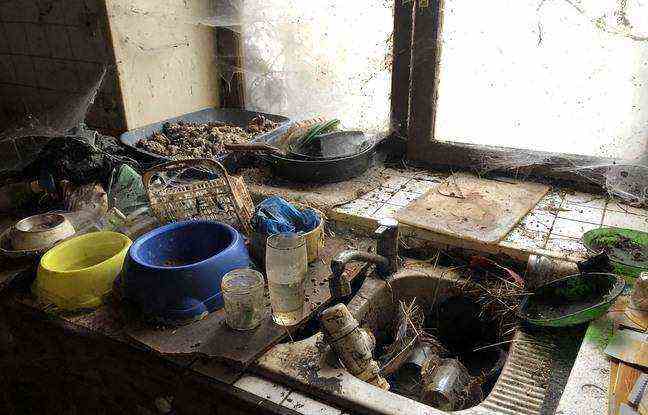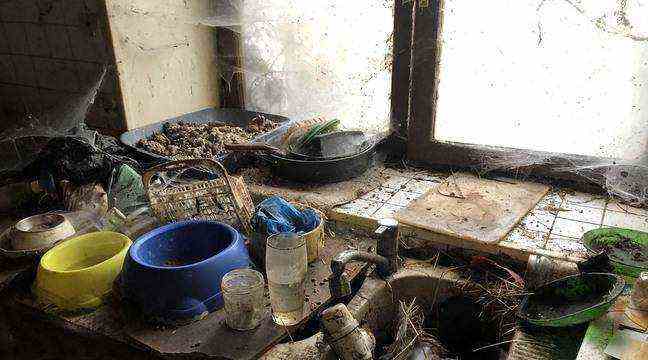Despite the respiratory mask that we wear, the smell is pestilential. The chaos reigning in this country house, located in the south of Ille-et-Vilaine, is also difficult to describe. In the entrance room, which normally serves as a living room, there are tons of all kinds of waste piling up on the ground. In this shambles, it is difficult to clear a passage as the garbage invades the room.
The kitchen area, or what’s left of it, offers the same horrifying vision with a broken, grime-covered sink and cat bowls, filled with feces or kibble, lying right next to it. The other rooms in the house are just as unsanitary. The blocked water points, the toilets and the bathroom are thus totally unusable and the bedroom looks like a squat.
People who refuse any outside help
It is in this sordid setting, unimaginable for ordinary mortals, that Samuel Millour’s team comes into action. This young man from Rennes, at the head of NDLE France, has in fact specialized for two years in the Diogenes shipyards, in reference to the syndrome of the same name. Still relatively unknown, this behavioral disorder is characterized by the compulsive accumulation of various objects and neglect of bodily and domestic hygiene.
It affects people with different profiles and from all social backgrounds. But almost all of them refuse to receive outside help, often living in denial and recluse in their homes. “But it also happens to people who are professionally integrated,” emphasizes Samuel Millour, who has learned, over the course of the projects, to better understand this syndrome. “It often comes after an emotional shock like the loss of a loved one,” he explains. People will therefore fill this lack by accumulating all kinds of things and reducing the space. »
Breathing mask, full suit and boots
It was to help them that he embarked on this job of “extreme cleaner” that few people would be able to do. “I’m not here to pass judgment on these people and their way of life,” he says. I intervene more in a social approach to help these people who are in distress. Faced with these emergency situations, it is often social services or landlords who ask him to intervene. “But it also happens whether it is the person themselves or their loved ones,” he says.

Before decluttering the rooms and sorting the waste, the shock team first makes sure that the house does not present any danger, electrical or otherwise. Equipped with a cartridge mask, to avoid toxic dust and odors, a full suit and boots, they then embark on the major cleaning. “And you have to send, it’s physical,” smiles his partner.
The shock of finding a healthy home
They sometimes come across cockroaches, fleas or bed bugs, requiring complete disinfection of the premises. As if looking for a needle in a haystack, they also regularly find valuable objects such as identity documents or keys. Depending on the state of disrepair and the amount of waste to be cleared, the sites can last from one to three days and up to a week for some.
Samuel is then proud to see these people find healthy housing. “But it’s sometimes also a shock for them because they no longer have any bearings in this new environment,” he says. We then accompany them by giving them little advice”. An extreme cleaner, but also an entrepreneur with a big heart.

